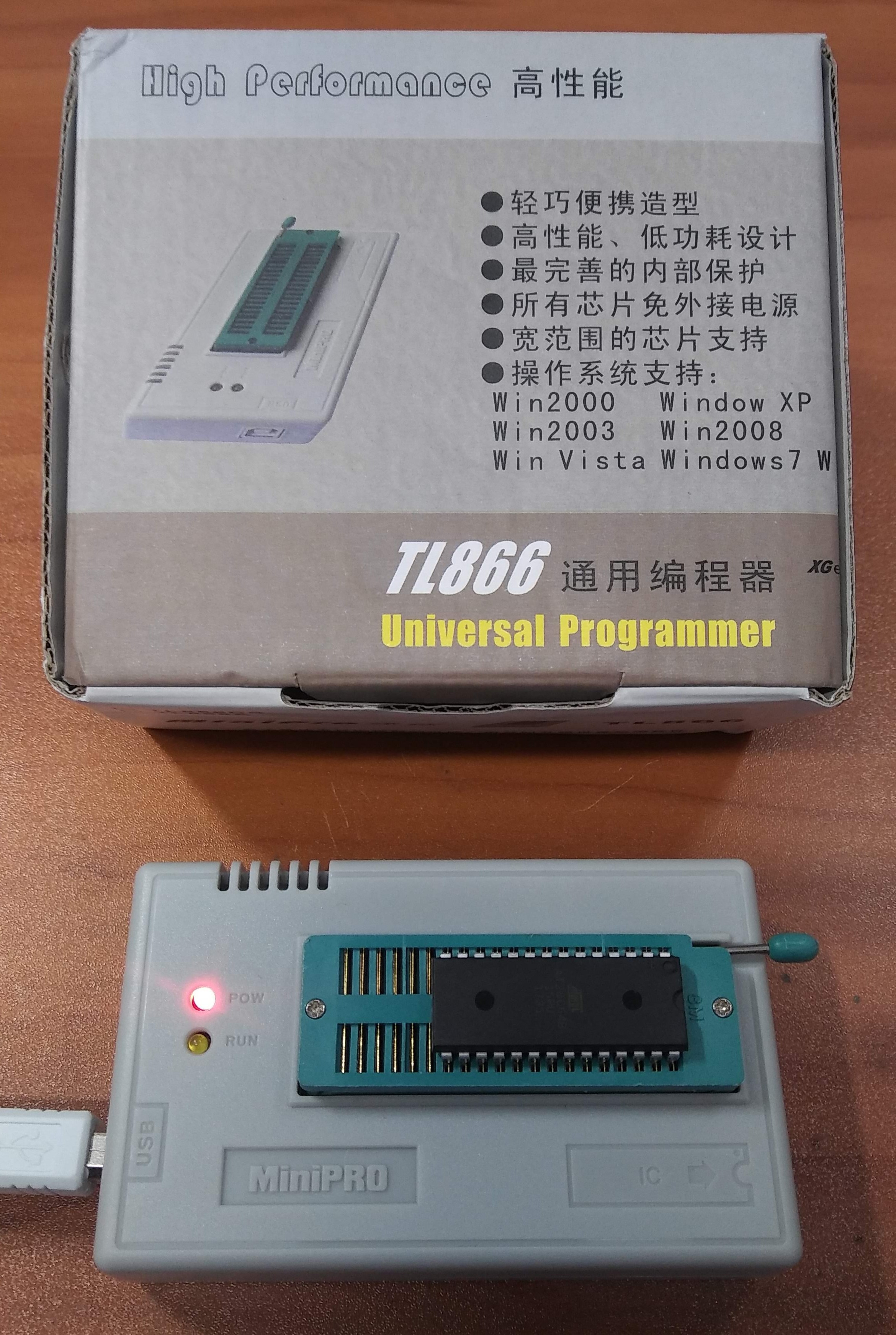
It has been over a decade since the last time I needed to program a parallel (E)EPROM of any type. Back in those days there was a parallel port on virtually every laptop and desktop computer. I ended up selling my old parallel port programmer years ago on ebay. With the build of the DDL4-CPU, it was time for me to look for something a little more modern. A quick search turned up the TL866 usb based programmer. Further searching revealed that there was a linux command line tool created for these programmers. So I ordered one! Well, I didn't read carefully enough.... there are three variations of the TL866 available, two are compatible, the third is not! The TL866 II+, is a slightly newer version that supports a wider range of voltages and has more In-System-Programming (ISP) support. So this was the one I selected to start with. The device works fine with the provided windows software, but no support available in the linux software for the TL866 II+. I ordered a second unit, this time the TL866CS (the TL866A would have worked as well). After downloading a copy of the linux tool, I was able to read and write to the EEPROM that I had selected. The linux tool did warn that the firmware on my device was old and I needed to update it. Unfortunately, the linux tool doesn't offer the capability of doing the firmware update (or none that I could find), so I ended up digging out an old windows laptop that keep around for just such occasions (I purchased it at a pawn shop for $99 - the wifi doesn't work!). After downloading the software and installing it, I flashed the new firmware, and went back to my linux setup with no more warnings! Sweet little setup!
UPDATE: someone shared the link to a linux based firmware updater!
 Dave's Dev Lab
Dave's Dev Lab
Discussions
Become a Hackaday.io Member
Create an account to leave a comment. Already have an account? Log In.
@SHAOS glad to help when i can! that is what the log entries are for! I hope at least a few people can benefit from my hard won knowledge and experience!
Are you sure? yes | no
Thanks again! :)
I looked into GitHub repository and it looks like it's some Russian guy from Siberia literally hacked into this device? ;)
But then a lot of other people also contributed - so it's GPL as it should be :)
Are you sure? yes | no
indeed sometimes the great code comes from unexpected places! it worrks well, so contribute back!
Are you sure? yes | no
I didn't know that they have Linux version for it! Thanks for info!
Are you sure? yes | no